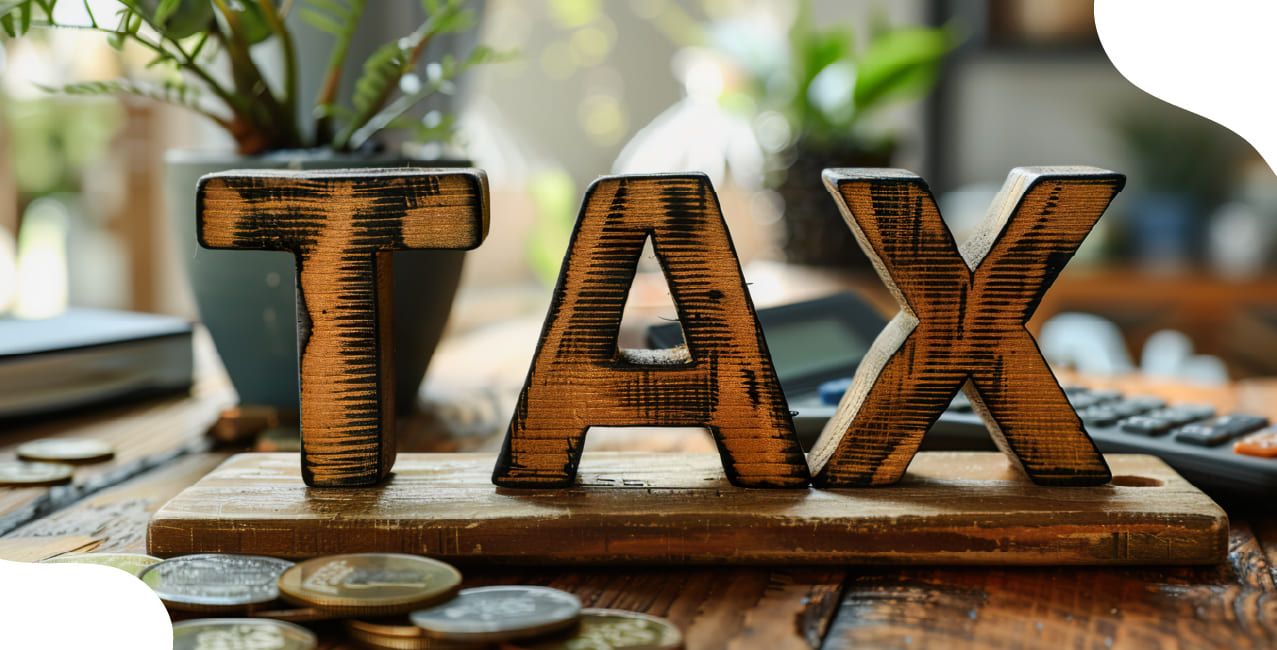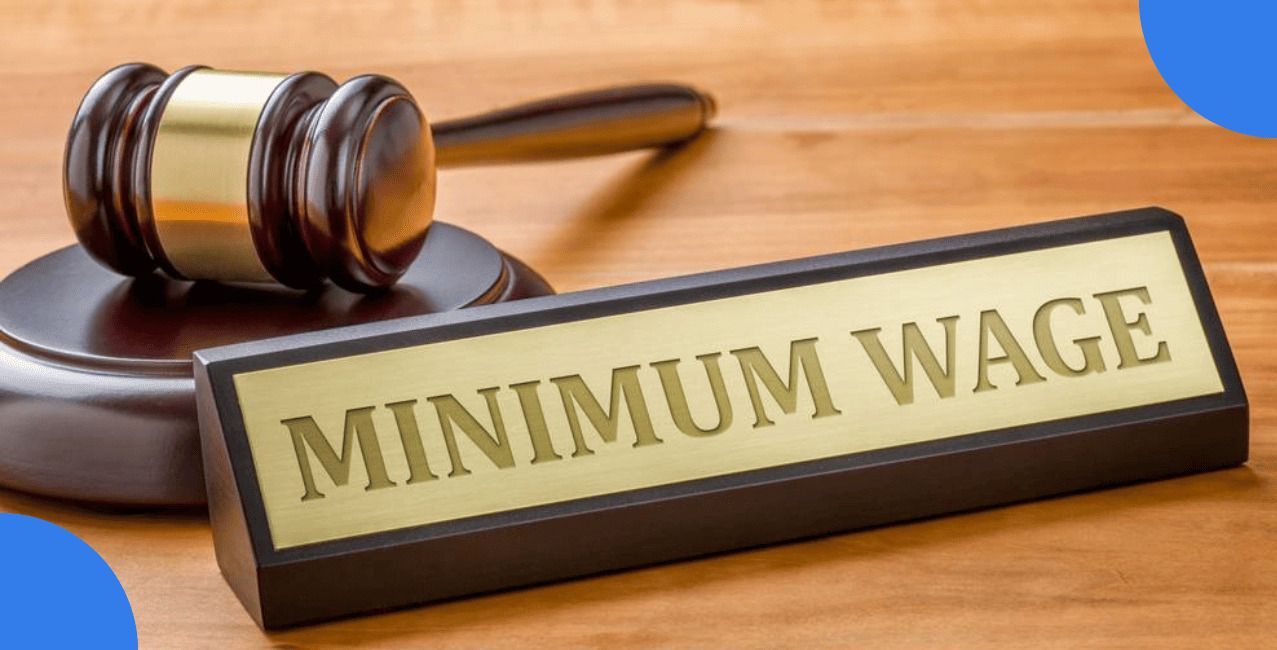Section 206C of the Income Tax Act: Complete Guide & TDS on Sale

Check Your Loan Eligibility Now
By continuing, you agree to LoansJagat's Credit Report Terms of Use, Terms and Conditions, Privacy Policy, and authorize contact via Call, SMS, Email, or WhatsApp
Key Highlights
- Under Section 206C of the Income Tax Act, sellers must collect tax (TCS) on goods like scrap, timber, minerals, or jewellery at the time of sale.
- For different items, there are different taxes. For example, 1% on scrap, 5% on tendu leaves, with exemptions below set limits.
- Collected TCS (by the sellers) must be deposited on time. If not, the seller can face penalties or even legal action.
Section 206C of the Income Tax Act requires certain sellers to collect Tax Collected at Source (TCS) from buyers when selling specific goods. It mainly applies when the goods sold are of high value and the seller’s income crosses a set threshold in a financial year.
For example, Mr. Raj runs a timber business. In one year, he sells goods worth ₹60 lakh to multiple buyers. Since the total value of his sales exceeds the threshold of ₹50 lakh, and each transaction is over ₹10 lakh, he must collect TCS from his buyers under Section 206C(1H).
By doing this, Mr. Raj ensures tax compliance and avoids penalties.
Importance of Section 206C of the Income Tax Act
Section 206C of the Income Tax Act plays a vital role in ensuring proper tax collection from the sale of certain goods. It helps the government monitor large transactions and reduce tax evasion. This section makes sellers responsible for collecting Tax Collected at Source (TCS) from buyers when certain conditions are met. This process ensures better compliance and transparency in trade.
- Improves tax collection: It ensures the government receives taxes in advance at the point of sale.
- Promotes fair trade: Sellers report high-value sales, helping maintain fair business practices.
- Prevents tax evasion: It tracks large transactions that might otherwise go unreported.
- Encourages digital compliance: Sellers must maintain records and file TCS returns online.
- Targets specific sectors: It applies to businesses dealing in timber, scrap, minerals, and high-value goods.
By applying Section 206C, the government strengthens its tax base and ensures responsible selling practices.
Do you know that TCS on the sale of scrap was introduced to improve tracking and data collection because the sector was so unorganised? The TCS rate is 1%.
Objectives of Section 206c of the Income Tax Act
Under Section 206C, sellers can collect tax at source (TCS) on specified sales. This is done to improve the tax system in such a scattered market.
The objectives listed in the table below explain why the government uses TCS to focus on compliance and public services.
TCS helps the government in taxing high-value transactions, reducing evasion, and widening the tax base.
TDS Rate Under Section 206c of the Income Tax Act
Section 206C of the Income Tax Act deals with the collection of tax at source (TCS). It requires the seller to collect tax from the buyer at the time of sale of certain goods or services. This section helps the government receive its due taxes more efficiently. Businesses must follow this rule to stay compliant and avoid penalties.
For example, sellers of goods like alcohol, timber, forest produce, minerals, or scrap must collect TCS at fixed rates. It also applies to jewellery or precious metal dealers who receive large cash payments.
However, TCS does not apply if the sale value is below certain limits, such as ₹2,00,000 for bullion and ₹5,00,000 for jewellery. Understanding and applying Section 206C properly helps both sellers and the government maintain accurate tax records. This table shows the standard TCS percentages that apply to specific goods and high-value sales.
Rates are different for products, and exemptions may apply for low-value sales.
Who Must Collect TCS?
In this table, we have summarised who should collect taxes for which commodity under Section 206C of the Income Tax Act.
If you have a low budget for shopping, you do not need to pay taxes (TCS in this reference). Though anything above the given limits comes under TCS collection.
Exemption under Section 206c of the Income Tax Act
Every financial year, the government sets a threshold limit for TCS (Tax Collected at Source). If a transaction value stays below this limit, TCS does not apply. Understanding this threshold is important for both buyers and sellers so they can meet their tax duties properly.
In addition, the government provides specific exemptions, where some transactions or buyers are not required to pay TCS. These exemptions depend on rules set by the tax authorities.
TCS is not applicable if the following conditions are met:
- The goods are bought for personal use, not for trading or resale.
- The goods are used in the manufacturing or production of other goods, but not for further commercial sale.
These rules help ensure that TCS only applies in business-related or high-value transactions, and not in everyday or personal purchases.
Due Date and Compliance Requirements of Section 206c of the Income Tax Act
Sellers who collect Tax Collected at Source (TCS) must deposit it with the Indian government within the specified time. They must also file TCS returns regularly and on time.
If a seller fails to collect TCS, the Income Tax Department charges interest at the rate of 1% per month or part of a month until the tax is paid. This interest starts from the date the tax was due to be collected.
If a seller collects the tax but does not deposit it, the consequences are more serious. Under Section 276BB of the Income Tax Act, the seller can face imprisonment for up to 7 years. In addition, under Section 271CA, the seller must pay a penalty equal to the amount of TCS not deposited.
To avoid penalties and legal action, all sellers must:
- Collect TCS at the time of sale of specified goods or services.
- Deposit the collected tax by the due date.
- File accurate TCS returns in the correct format.
By following these rules, businesses can stay compliant and avoid unnecessary penalties.
Practical Examples
Section 206C requires sellers to collect tax at source (TCS) when they sell certain goods or receive payments above specified limits. Let’s look at two real-life examples.
Example 1: Sale of Scrap
A metal company sells scrap worth ₹5,00,000 to a buyer.
The seller must collect ₹5,000 as TCS and deposit it with the Income Tax Department.
Example 2: Sale of Timber from the Forest
A trader sells timber worth ₹3,00,000 obtained under a forest lease.
The seller collects ₹7,500 as TCS and must deposit it and report the transaction in the TCS return.
These examples show how sellers apply Section 206C when dealing in specific goods, helping ensure proper tax collection at the time of sale.
Conclusion
Section 206C of the Income Tax Act plays a key role in making sure that tax is collected efficiently at the time of sale. It places the responsibility on the seller to collect tax at source (TCS) when selling certain specified goods or services like alcohol, timber, minerals, and scrap. This method helps the government receive taxes early and reduces the chance of taxes being avoided later.
Sellers must deduct TCS at the correct rate and deposit it with the Income Tax Department within the given time. They must also file proper returns and provide certificates to the buyers. If sellers fail to collect or deposit TCS, they may face interest, penalties, or legal action.
FAQ’s
Who collects TCS under Section 206C?
The seller collects TCS from the buyer at the time of sale of specific goods like alcohol, timber, or scrap.
When does Section 206C not apply?
TCS does not apply if the goods are bought for personal use or used in manufacturing, not for resale.
What happens if the seller does not collect TCS?
The seller may face interest, penalties, or legal action for failing to collect and deposit TCS properly.
What is the TCS rate for scrap under Section 206C?
The seller must collect TCS at the rate of 1% on the sale of scrap materials.
Is TCS applicable to jewellery sales?
Yes, but only if the jewellery value exceeds ₹5,00,000 and is sold in cash. Below this limit, TCS is not required.
Other Related Pages | |||
About the author

LoansJagat Team
Contributor‘Simplify Finance for Everyone.’ This is the common goal of our team, as we try to explain any topic with relatable examples. From personal to business finance, managing EMIs to becoming debt-free, we do extensive research on each and every parameter, so you don’t have to. Scroll up and have a look at what 15+ years of experience in the BFSI sector looks like.
Subscribe Now
Related Blog Post

What is the Rate of Property Tax in Assam? – Updated Guide

Property Tax Bihar: Rates, Online Payment Process & Complete Guide

Property Tax Gujarat – Rates, Calculation, Payment Process & Complete Guide
Recent Blogs
All Topics
Contents
Quick Apply Loan
Consolidate your debts into one easy EMI.
Takes less than 2 minutes. No paperwork.
10 Lakhs+
Trusted Customers
2000 Cr+
Loans Disbursed
4.7/5
Google Reviews
20+
Banks & NBFCs Offers
Other services mentioned in this article
.png)




